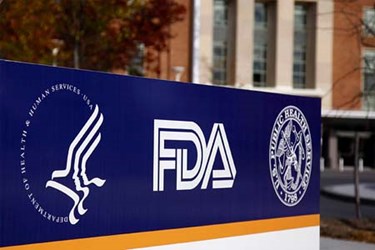FDA's Regulation Of Laboratory Developed Tests On The Horizon
By Nick Otto

The FDA recently announced that it is going to begin regulating medical laboratory testing, including companion diagnostics and laboratory developed tests (LDTs).
In the statement, the agency stated that tests used to make important treatment decisions must be inspected to provide “accurate, consistent and reliable results.”
As a first step, the FDA says it plans to issue final guidance on the development, review, and approval of companion diagnostics — tests that help determine whether a patient will benefit or sustain harm from a certain drug. Typically, companion diagnostics are used to detect certain types of gene-based cancers.
As a second step, the agency says it will publish a proposed risk-based oversight framework for LDTs — a proposal the agency has presented before Congress.
The FDA will not subject all LDTs to oversight, Jeffrey Shuren, director of the FDA’s Center for Devices and Radiological Health (CDRH), said, but intends “to continue exercising enforcement discretion with respect to the premarket review requirements for tests that labs make for rare diseases, to address an unmet need, or that are low risk.”
“Inaccurate test results could cause patients to seek unnecessary treatment or delay and sometimes forgo treatment altogether,” FDA Commissioner Margaret Hamburg said in the FDA press release. “Today’s action demonstrates the agency’s commitment to personalized medicine, which depends on accurate and reliable tests to get the right treatment to the right patient.”
A recent statement from the American Clinical Laboratory Association (ACLA) urged the FDA to take caution when adding more regulation, saying that the tests are already overseen by other regulatory agencies. According to the ACLA, FDA oversight may result in a slowing of device innovation, cutting off patient access to new treatments.
“We’ve seen an explosion of innovation in laboratory diagnostics that has allowed labs to diagnose and measure disease with an accuracy and precision never before possible,’’ Alan Mertz, president of the ACLA, said in a statement. “This has changed how the medical world views and treats everything from rare diseases to infectious disease to cancer.”
Five Democratic senators who favor FDA regulation, led by Massachusetts Sens. Ed Markey and Elizabeth Warren, wrote to the Office of Management and Budget on July 2, saying the LDT draft guidance developed by the FDA needed to be released for better regulation.
In response to the FDA’s announcement, The Boston Globe noted that Markey lauded the proposed regulation, saying “I am pleased that OMB and FDA have responded to my call to finally release draft guidance to provide clarity in the oversight of laboratory developed diagnostic tests.”
